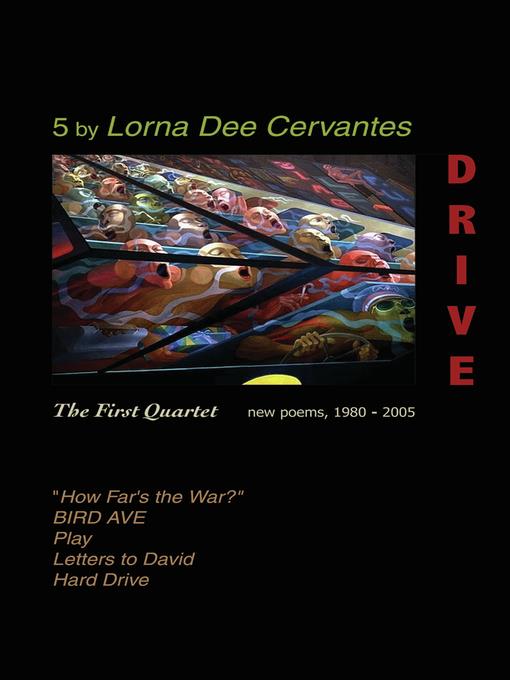
Drive: the First Quartet
New Poems, 1980-2005
کتاب های مرتبط
- اطلاعات
- نقد و بررسی
- دیدگاه کاربران
نقد و بررسی

December 19, 2005
One of the first Chicana poets to achieve wide U.S. recognition, Cervantes did so with just two books, Emplumada
(1981) and From the Cables of Genocide
(1991); this substantial, versatile follow-up consists (subtitle not withstanding) of five distinct collections, that can be considered as discrete works. All show fire and range, and all draw on Cervantes's life on the streets as a teen and on her left-wing activism as an adult. The first, How Far's the War?
, comprises poems of activism and protest against a global spate of injustices, from Latin American dictatorships to shortages in Eastern Europe: "La plumage de justicia hangs from the broken/ arrows of palabras breaking the media block/ Of Truth and Consequences of Free Trade Agreements." The last, Hard Drive
, collects warmly convincing poems of erotic and parental love, remembered, promised and achieved: "Come,/ and let us eat/ up the hours/ between us." BIRD AVE,
perhaps the strongest, concentrates on Cervantes's youth, recalling "what girls/ did in/ the barrio/ to get/ their 15/ minutes of fame." About 10 poems are abbreviated appropriations of very famous poems by Bishop, Williams and others, with new titles. But this five-in-one volume reestablishes Cervantes as a singular voice.

February 1, 2006
In her first collection since 1991, Cervantes presents five books bound togetherthat can stand alone or be read as a series. Many pieces are political, while several others are intensely personal. Some poems are playful; some are love or lost-love poems or small snapshots of residents of a neighborhood not unlike Sandra Cisneros's poetic vignettes in "House on Mango Street". A seminal contributor to the Latino movement of the 1970s, Cervantes published, in her journal "Mango", many important Latino writers including Cisneros. In one -book, - Cervantes exposes readers to wordplay, imagery she refers to as -seven minute - poems. In another, she addresses David Kennedy, doomed son of Robert Kennedy, who took his own sad life in 1984, some 20 years after witnessing his father's death on national television. Cervantes's language is accessible, her diction plain, yet her poems are often lyrical and full of rich imagery: -She was striving/ for a dream that was already/ broken, off the cuff, / in the rough, and off the key/ of Freedom. - Enhancing the musicality of her diction, she slips from English to Spanish and back -with ease. Recommended for general collections and also those that feature Latino, Chicano, and Native American poets." -Karla Huston, Appleton Art Ctr., WI"
Copyright 2006 Library Journal, LLC Used with permission.

























دیدگاه کاربران